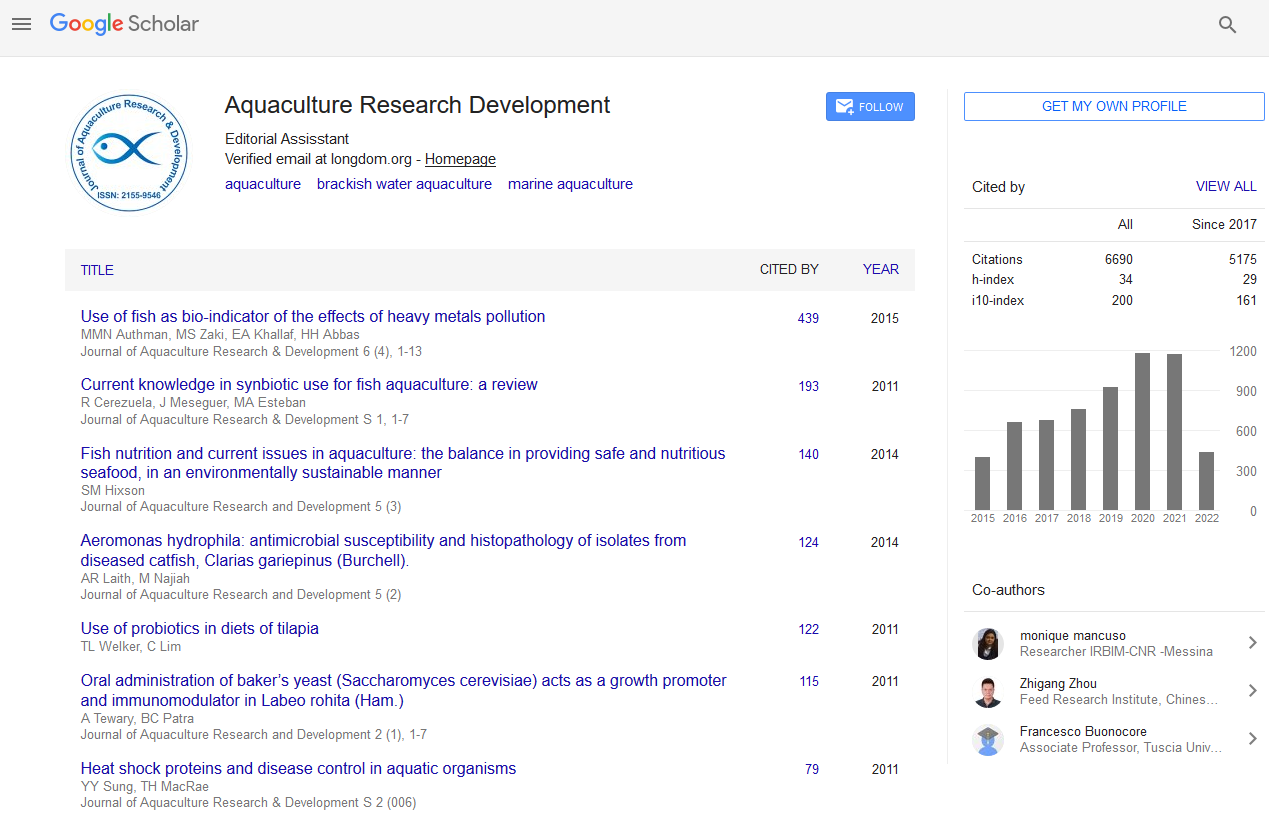PMC/PubMed Indexed Articles
Indexed In
- Online Access to Research in the Environment (OARE)
- Open J Gate
- Genamics JournalSeek
- JournalTOCs
- Scimago
- Ulrich's Periodicals Directory
- Access to Global Online Research in Agriculture (AGORA)
- Electronic Journals Library
- Centre for Agriculture and Biosciences International (CABI)
- RefSeek
- Directory of Research Journal Indexing (DRJI)
- Hamdard University
- EBSCO A-Z
- OCLC- WorldCat
- Scholarsteer
- SWB online catalog
- Virtual Library of Biology (vifabio)
- Publons
- MIAR
- University Grants Commission
- Euro Pub
- Google Scholar
Useful Links
Share This Page
Journal Flyer

Open Access Journals
- Agri and Aquaculture
- Biochemistry
- Bioinformatics & Systems Biology
- Business & Management
- Chemistry
- Clinical Sciences
- Engineering
- Food & Nutrition
- General Science
- Genetics & Molecular Biology
- Immunology & Microbiology
- Medical Sciences
- Neuroscience & Psychology
- Nursing & Health Care
- Pharmaceutical Sciences
Abstract
Effects of Meal Frequency on Growth Performance and Feed Efficiency of Two year-Old Mulloway (Argyrosomus Japonicus; Pisces : Sciaenidae) Reared in Tanks
Jeffrey A Guy, Stephen DA and Smith
Two 4-week tank feeding trials were conducted with market size (1.5 kg+) mulloway (Argyrosomus japonicus) to evaluate current commercial grow-out feeding practices related to short-term fasting. Growth performance, feed intake and efficiency were evaluated in seawater during spring 2013 (September-October, water temperature 18.22- 21.97°C) and autumn 2014 (May-June, 19.42-23.0°C). Mulloway fed continuously in spring on a 6 day on - 1 day off rotation, had the highest condition index (1.12), grew significantly (P < 0.05) faster (SGR 0.35% day-1) and had better feed efficiency (FCE 76.97%) than fish subjected to two different repetitive periods of fasting and satiation refeeding (1 day on -1 day off, SGR 0.24% day-1, FCE 62.57%; 2 days on - 1 day off, SGR 0.22% day-1, FCE 58.24%); despite these fish exhibiting hyperphagia. Feeding vigour and appetite was more pronounced in the 1 day on - 1 day off than the 2 day on - 1 day off rotation. In autumn mulloway fed 5 days week-1 had the lowest final weight (1.63 kg), grew significantly slower (SGR 0.26% day-1), had poorer feed conversion (FCR 1.63) and condition (K 1.06) than fish fed 7 days week-1 (final weight 1.74 kg; SGR 0.44% day-1; FCR 1.3, K 1.09). The results of this study suggest that two-year-old mulloway do best under a constant feeding frequency while management actions, such as short-term fasting and not feeding on the weekend, will have a negative impact on fish growth and condition.


